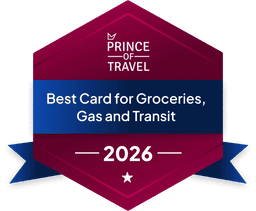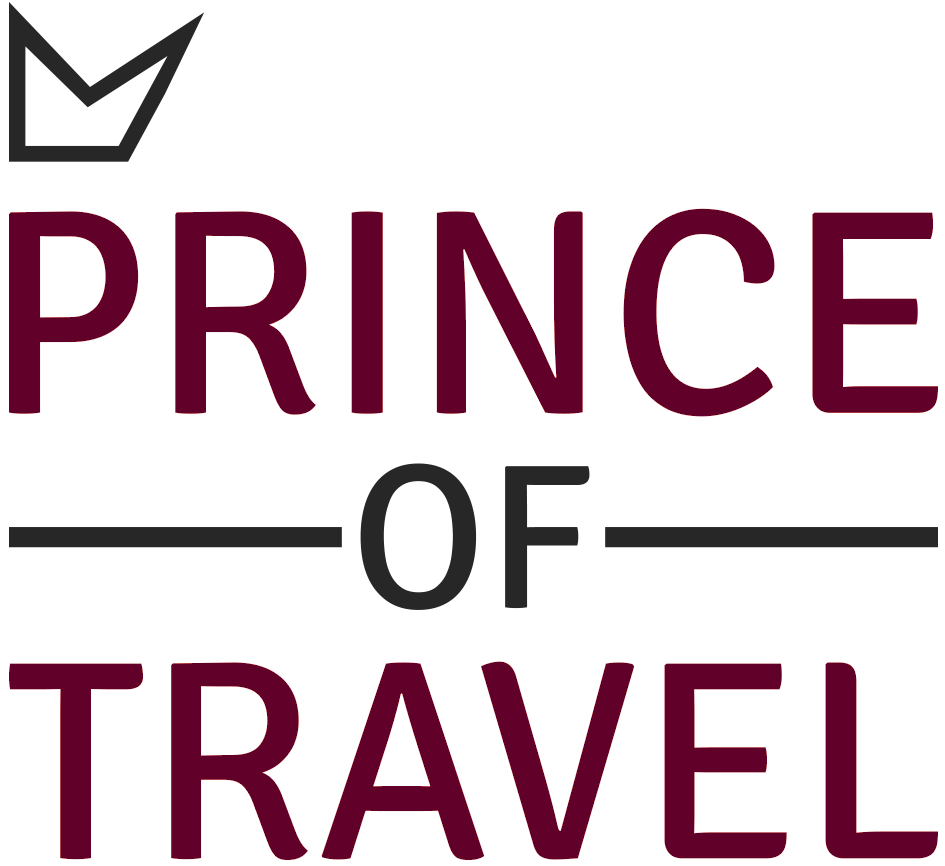Hang Up and Call Again: The Secret to Getting What You Want

While the pursuit of Miles & Points largely consists of playing around with numbers and data on a variety of interconnected computer systems, there’s also a “human element” that we often speak of, which is most commonly encountered in the form of the customer service representatives that assist customers on behalf of the banks, airlines, and loyalty programs.
As you set out to earn and redeem points, you’ll inevitably have to call the contact centre every now and then to complete certain tasks here and there (as much as you might try to avoid the issue using Live Chat and social media).
Now, humans are a wild bunch. Some are highly proficient at what they do, while others are incompetent; some are sticklers for the rules, while others can be easily swayed with a a heartfelt compliment about their mellifluous voice – and so on and so forth.
So what’s the trick that every persistent caller keeps up their sleeve to “play the field” among a sea of customer service representatives of varying qualities – sharp or dull, kind or mean-spirited, conscientious or lazy – and obtain the outcome they truly desire? Hanging up and calling again – or HUCA, for short.

Why You Might Want to HUCA
If banks and airlines didn’t hire humans to deal with customers and everything was handled by the computer, then there would never be a need to hang up and call again.
All the rules and polices would be applied with surgical precision 100% of the time, which would save us lots of frustration… but would also rob us of many opportunities to stretch the limits of what’s possible.
But alas, human call centre agents are still sitting around in call centres at the moment, which leaves us with a wider range of possible outcomes when dealing with the loyalty programs and credit card companies. And the objective of HUCA is, of course, to capture the most favourable outcomes within that range by making multiple attempts if necessary.
Here are a few examples of how HUCA will work to your advantage:
-
When you know something is possible in theory, but the agents are giving you a hard time in practice.
For example, ever since Air Canada & Aeroplan’s transition to Amadeus, the process of booking Aeroplan Mini-RTW itineraries over the phone has been made more difficult by the fact that many agents are either unable or unwilling to piece together segment-by-segment itineraries that you’ve built yourself.
Via HUCA, you can eventually find an agent who knows how to get the booking completed for you.
-
When you know something is possible in practice, but the agents are giving you a hard time in theory.
Compared to the previous case, this is more of an instance of “pushing the boundaries”, where you’re asking for something you aren’t entitled to, but you know that others have successfully asked for.
An example of this might be Marriott Bonvoy’s five-night Flight & Hotel Packages: these packages are reserved for timeshare owners, with regular members only being able to book the more expensive (and less flexible) seven-night packages instead.
However, Marriott’s phone agents have happened to allow regular members to book five-night packages in the past, so HUCA may prove worthwhile if you’re looking for an agent who might be willing to make an exception for you.
-
When you’ve caught wind of a policy change, and hope to benefit from speaking with an agent who hasn’t heard about it yet.
For example, American Express recently instructed its front-line agents not to link or merge Membership Rewards accounts until July 20, because the Double Rewards promotion proved far more (unsustainably) popular than they had expected.
When the first data points about this filtered through, however, members were still able to get some of their accounts linked over the phone, because some agents might not have read the memo yet.
-
When you’re looking for a goodwill gesture, which is granted based on an agent’s discretion.
Things like credit card late fee waivers, retention offers, annual fee waivers, or one-time goodwill credits for a slight inconvenience you experienced can often be granted at an agent’s discretion.
If you don’t receive it the first time you call, it’s reasonable to try a few more times and see if other agents are in a better mood. Note, however, that these are almost always logged when you receive them, so don’t count on overdoing it.
-
When an agent just isn’t up to scratch.
Sometimes, you can tell that the agent you’re dealing with, through no fault of their own, simply doesn’t have the chops to book a complex itinerary or execute whatever complex procedure you’re asking for. Or perhaps you feel like a different agent could easily get this done in a fraction of the time.
If that’s the case, it might be easiest to politely thank the agent for their time and drop that HUCA hammer.
The concept of HUCA may not be intuitive for newcomers to the game – most people out there are accustomed to calling in only once about an issue or question that they have, and taking that particular agent’s word as gospel.
However, as you can tell, the power of HUCA rests upon a simple truth in Miles & Points: through the accumulation and analysis of countless data points, we as a community are often much better informed about a certain product, promotion, or any other feature of a financial institution or loyalty program than the customer service representatives of those companies themselves.
So that’s all there is to it – anyone who’s willing to put in the time with HUCA can easily squeeze out the most optimal outcomes across all their credit cards and loyalty programs, right?
Well, not so fast.
The Dreaded “Notes”
Just as we like to evade the Call Centre Karens through the HUCA technique, so too do the Call Centre Karens have a similar trick up their sleeve: leaving notes on your account and instructing their colleagues not to let you do what you want to do.
Now, if you’re blatantly trying to push the boundaries with your HUCA behaviour, then it isn’t unreasonable to eventually expect notes to be left on your account saying that this customer is basically wasting everyone’s time by asking for stuff they aren’t entitled to. After all, if we like to push for favourable outcomes for ourselves, then the companies we deal with obviously have every right to do the same.
However, the dangerous thing here is that the agents don’t even need to be correct about the matter at hand to leave notes on the account – they only need to believe they are correct.

“This is not allowed because it’s clearly backtracking. You’re going to Colombia and then back to the USA and then Australia…”
“Well, what are the backtracking rules exactly?”
“I’m not going to argue with you, sir.”
For example, we’ve heard a few instances of Aeroplan agents insisting that either segment-by-segment bookings cannot be made, or that the erroneous “new MPM” now applies instead of the more generous existing MPM. When the member objects to this or escalates to a supervisor who’s also mistaken, they can suffer the misfortune of having notes left on their account saying “member has been calling repeatedly to book this itinerary; do not allow member to book” – or words to that effect.
Once you have notes left on your account, your life is a lot more difficult than before. That’s because even if you do eventually find a competent and willing agent to do what you want, there’s a good chance that they may not be willing to act against the notes left by their colleague.
The good news? Even the most obstinate of agents will usually only leave notes on an account if they have reason to believe that you’ll be calling back repeatedly and asking for stuff that (in their view) you aren’t entitled to.
Therefore, it’s never a good idea to raise your voice or get into shouting matches with a call centre agent, because they have the power to do long-lasting damage to your goals; instead, always remain level-headed, calm, and polite – and if it’s time to end the call, end the call.
How to HUCA with Grace and Charm
That brings us to the topic of how best to approach HUCA from a practical perspective.
I’ve always been a proponent of acting in good faith, which usually makes your opposite number more likely to respond in kind. As I mentioned above, approaching the call with a good-natured, upbeat, and approachable tonality in your voice will give you a much better chance of securing a positive outcome and avoiding a negative one.
To that end, I’ve found that it’s ideal to frame your request in the context of working together with the agent to achieve a certain outcome, rather than getting the agent to do something for you.
For example: “Could I get your help with booking a complex itinerary that I’ve pieced together, but wasn’t able to book online?” That goes a much longer way than “I’d like to book this 16-segment multi-city trip with an open-jaw and 13 long layovers, please.”
Generally, you should be able to gauge how receptive the agent is to your request over the first minute or so. If they’ve received a dozen similar calls over the past few days and turned down all of them, it’ll be very obvious – in that case, don’t waste your breath, simply say “OK, thanks for your help,” and hang up. And then call again.

There are some instances, however, when even a polite goodbye might be one sentence too many.
For example, let’s say you’re in the process of HUCA and you end up getting connected to the same agent who had rejected your request just minutes ago. What do you say in this case?
(I myself ran into this situation not too long ago, and couldn’t think of anything to say besides “Oh sorry, I was trying to call back and speak with someone else,” accompanied with some nervous laughter. Boom – notes on my account.)
Or let’s imagine you’re calling American Express with the innocent request of confirming your minimum spending window, but then the agent says something along the lines of “I see here that you’ve held the card before, so you actually won’t be getting the signup bonus.”
You’re familiar with the fact that repeat signup bonuses aren’t supposed to be granted, but are often granted anyway – but you’re also familiar with the fact that call centre agents can manually flag accounts and deny repeat bonuses as well. What do you say in this case?
In both scenarios, there really isn’t anything to say, since you’ve already found yourself in an adversarial position whether you like it or not. And now that we think about it, this would be an excellent time for your phone battery to die, wouldn’t it? 😉
Conclusion
If you ask me, the human element of Miles & Points makes the process of earning and redeeming points a lot more fun.
Things would be kind of boring if all we did was follow the carefully laid-out and strictly enforced rules of the banks and loyalty programs; instead, the human element gives us a much wider range of potential outcomes to look forward to, and the art of hanging up and calling again (HUCA) – always with a chipper attitude and a line of defence against the dreaded “notes” – is the key to unlocking the best of those outcomes for yourself.

First-year value
$336
Monthly fee: $15.99
• Earn 1,250 points per month upon spending $750 per month for 12 months
Earning rates
Key perks
- Transfer to airline and hotel partners

Monthly fee: $15.99
• Earn 1,250 points per month upon spending $750 per month for 12 months
Earning rates
Key perks
- Transfer to airline and hotel partners





